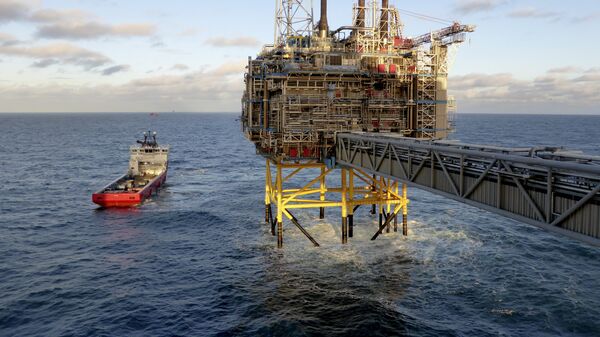Norway exported over 123 billion cubic meters of gas to Europe last year, which is 9 billion cubic meters more than the year before, the Aftenposten daily reported. A gas year runs from October to October, and the recently released reports are a particularly pleasant read for Norway's oil and gas giant Statoil.
Between October 2016 and 2017, Europe's demand for gas has increased by 20 billion cubic meters, which has led Norway to a new export record, solidifying its stance as the EU's second largest player on the EU market after only Russia.
Anfinnsen named several reasons that have whetted Europe's appetite for gas after a period of decreasing demand.
"The reason is, among other things, that EU's own production of gas is going down. This is especially true for the Netherlands," Anfinnsen explained.
New Norwegian Gas Production record for the month of July — https://t.co/kQaVzTY7LD pic.twitter.com/1zgRexVHyv
— Gaute Erichsen (@GauteErichsen) August 18, 2017
Another reason for the hike in demand is that gas is increasingly supplanting coil consumption. This is partly due to the fact that oil has become more expensive, but also because of the EU nations deliberately cutting oil consumption.
Yet another reason is the EU's politicized decision to diversify its energy sources in a bid to "relieve its dependence on Russia," despite Moscow's time-tested reputation as a reliable provider.
Anfinnsen also noted that nuclear plants in France in Belgium have experienced production shutdowns, whereas Germany is preparing to dismantle nuclear power altogether.
"We have seen US gas being sold to Asia and Latin America. Therefore, little US gas has been shipped to Europe," Anfinnsen explained. According to him, Norwegian gas will be well in competition due to the Nordic nation's ramified pipeline system and its proximity to the market.
Anfinnsen predicted that the current tendency to use more gas for power generation will last, despite decisions to phase out coal and obsolete nuclear energy plants. Although the ultimate goal is to replace them with renewable energy sources, such as wind, water or thermal power, since these are largely weather-dependent, gas may provide stability in the power supply.
More interest for new oil and gas exploration in 🇳🇴than ever https://t.co/Ok5mDNwwbK pic.twitter.com/xhwfr85zNJ
— Gaute Erichsen (@GauteErichsen) September 6, 2017




